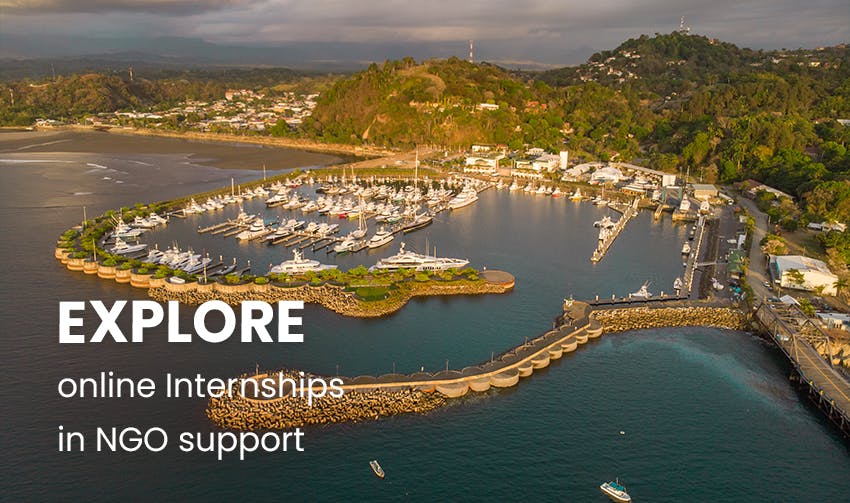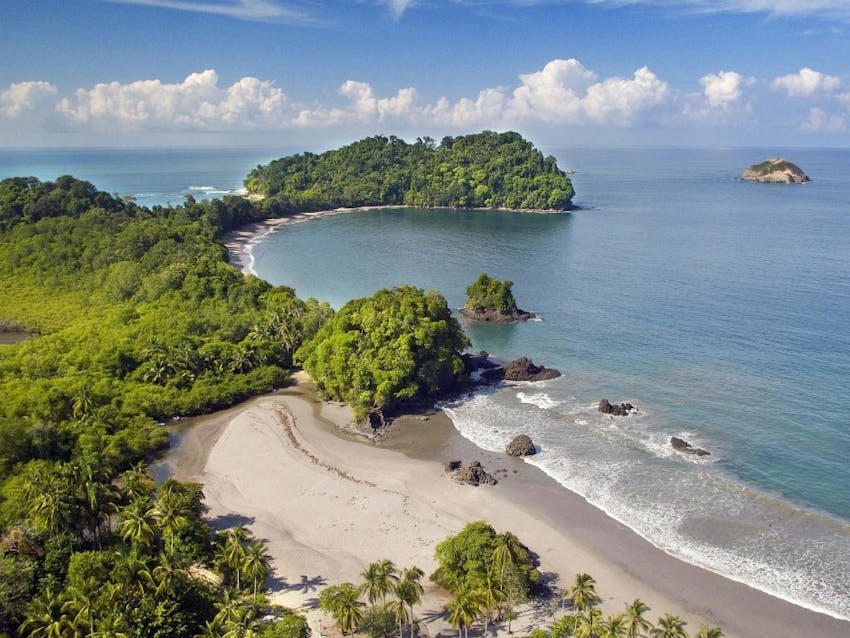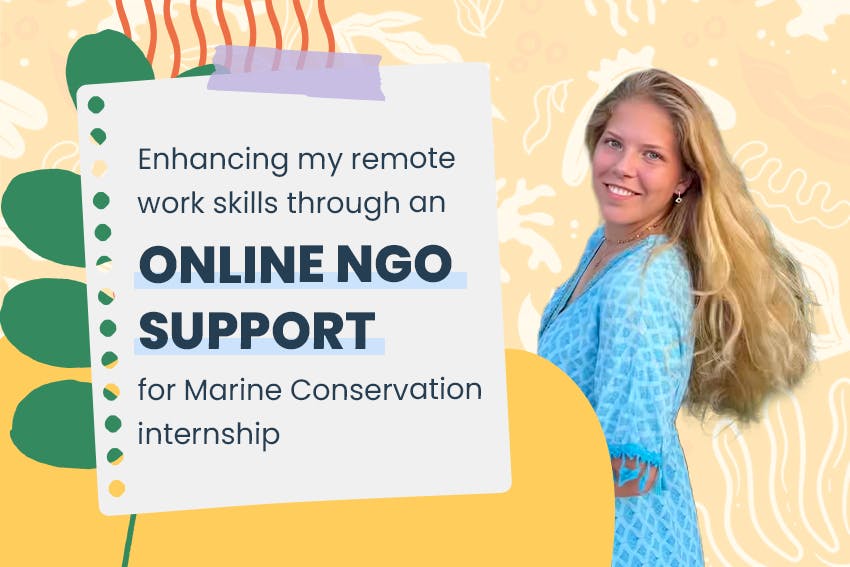
If you have career aspirations in the environmental field, consider how a remote internship helps you to build essential communication skills, while learning the ins and outs of NGO work. For Alissa, the remote NGO Support for Marine Conservation internship provided valuable new insights into the world of marine conservation. Read on to learn about what this experience was like for her and what you might expect, getting involved yourself!
Want to learn how you can do this internship in-person? Check out Sustainable Business & Tourism or Environmental Education internships in Costa Rica and find out more about what to expect here.
Why did you choose to do this online NGO Support for Marine Conservation internship?
I have career-aspirations in the environmental field, so this online internship allowed me to get to know the field a bit better, providing the opportunity to see how it is to work in an NGO. Remote work is also an idea that I have also started entertaining for a while, so this remote internship has given me the chance to see how it is to collaborate with people virtually, living in a different country and time zone to each other. Communication is key in these situations, so this internship has allowed me to work on these very valuable skills.
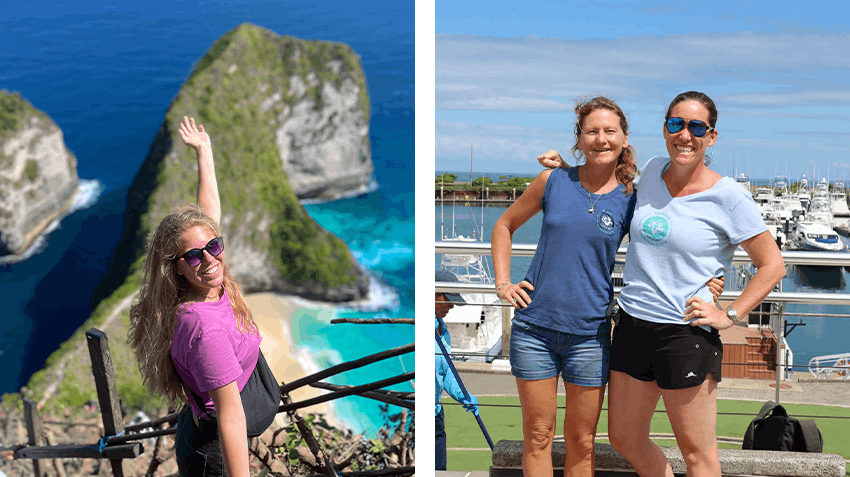
What did your remote internship activities involve?
During this online internship I was mostly active in the areas of educational curriculum development, social media strategy development and social media posting and engagement.
Primarily, I developed several curriculums for young school children (aged 6-10) on various marine conservation topics. This includes extensively researching these topics online and putting together engaging and interesting presentations to be used in workshops at local Costa Rican schools and at the NGO - the NGO is currently building up their educational program, so this was my main priority during my internship.
Additionally, I evaluated and analyzed the NGO’s social media presence and put together a five-page long review with my suggestions as to what can be amended or improved upon to create a greater impact. Tasks that went into the social media strategy development were to conduct research on the target audience, industry trends, and competitors; develop a comprehensive social media strategy for the NGO; define goals, objectives and metrics for success.
Finally, I was responsible for researching and writing an article about the two co-founders of MCCR to be posted on the organization’s blog. It is something that was requested of me, in order for the reader and audience to be able to better get to know the origin story and the background behind the NGO. For this article, I first researched and compiled a list of questions, and then interviewed both co-founders to get their insight.
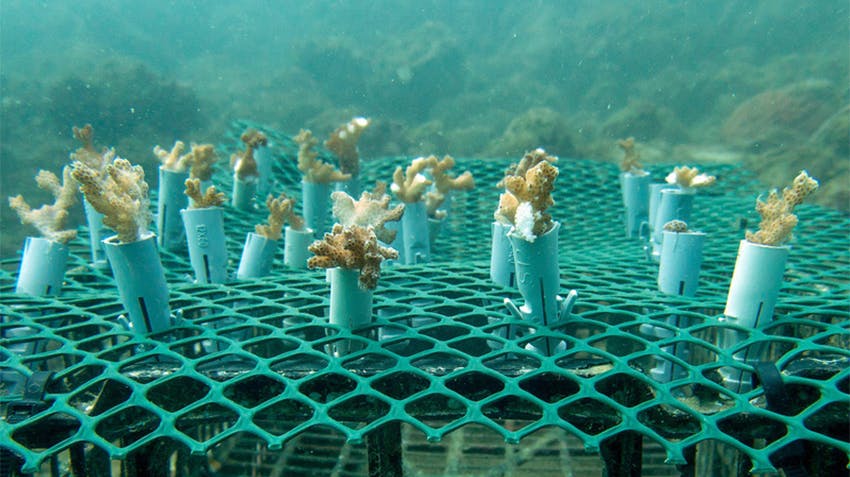
What was your main form of communication for the online internship?
Since my internship supervisor and I were in very different time zones, email was the mode of communication that was most convenient. It worked very well, especially when sharing completed tasks with my supervisor.
Most of my questions that I had were either answered by email or text message, but we did have rare calls when I needed more guidance, or when talking on the phone to explain a situation was more efficient and understandable.
The communication method was very relaxed and easy-going: there was no need for overly formal emails, a text message or a short update was more than enough.
From my academic background in school and university, I am more used to everything being quite formal, so working in a casual environment was a very nice surprise.
Were there any unexpected aspects of this remote internship experience?
I wasn’t exactly sure of the scale of the NGO that I would be working with. It turned out to be quite a young and small organization with a very warm and familiar approach and work-environment, which I was very pleased with.
I was quite nervous to start this internship, as I had very little knowledge of what my responsibilities would be and what was awaiting me. I was very pleasantly surprised at the casual work environment, the friendliness of everyone, and especially everyone’s willingness to help me get settled.
My supervisors always were eager to answer any questions I had and gave me lots of freedom in my workload and responsibilities.
Was there a language or cultural barrier that you had to overcome?
Initially I was expecting the founders of the NGO to be from Costa Rica, since the organization is located there. But it turned out that both co-founders are from the UK and thus spoke perfect English. They have lived in Costa Rica for around 20 years now and employ locals. I was expecting there to be a potential language barrier, but of course this didn’t turn out to be the case.
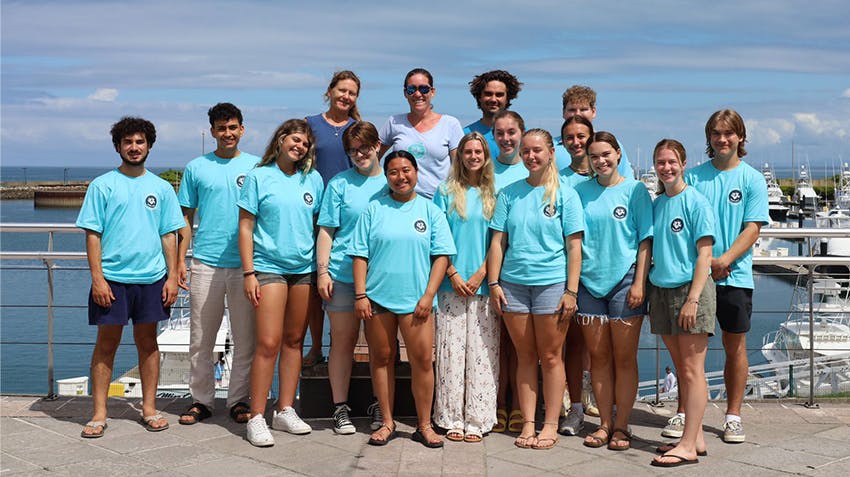
What were some of your main takeaways from this experience?
The fact that I had to manage my own time and workload makes me feel a little more confident to continue to successfully do that in the future. The internship has given me new insights into the NGO and marine conservation life, which is very valuable.
Variety and stepping out of one’s comfort zone is very important in my opinion, and it is this that allows people to grow. For me, I would like to continue to gain new experiences in different fields and types of organizations in the future. Working in a young and relatively small NGO was definitely a new experience. Getting to know new cultures, work-ethics, and problems greatly adds to your open-mindedness and makes you much more aware in general. Definitely a very enriching experience!
Do you have any advice for future interns you can share?
My advice to future interns would be to not be so nervous and just go into the experience with an open mind to be able to take away as much as possible.
Ready to start planning your own internship abroad? Here’s how to started!
Our step-by-step guide on how it works provides you with more information on how to get started. The process is user friendly - just submit your application to get started. It doesn’t cost anything to apply and won’t take more than 5 minutes. However, your formal expression of interest provides the foundation for us to help you take the next steps.
